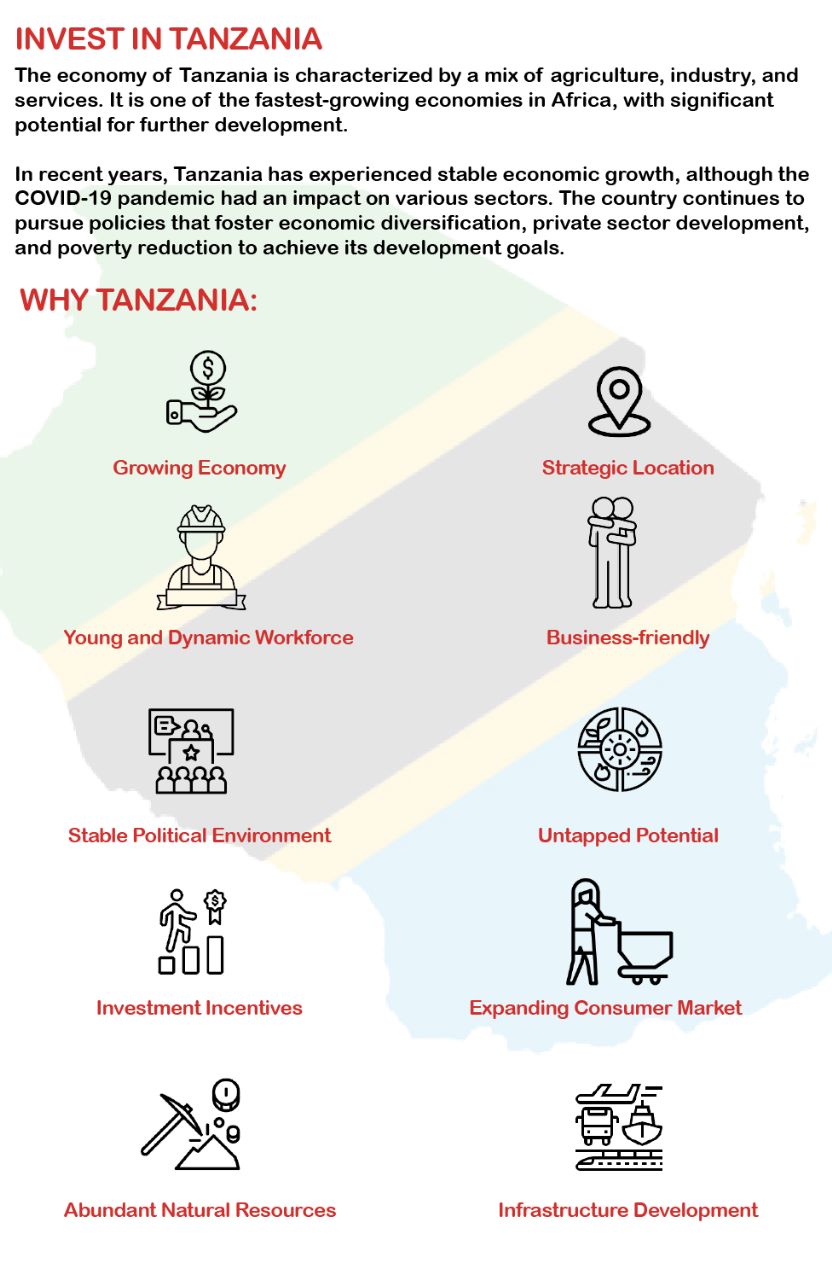Starting a business is a gateway to empowerment and economic growth. Over 75% of Tanzania’s workforce is involved in the informal economy, presenting both challenges and opportunities for new entrepreneurs. With proper strategy, a business in Tanzania can thrive and contribute significantly to the economy.
Understanding the regulatory framework is crucial. Tanzania’s Business Registrations and Licensing Agency (BRELA) offers clear guidelines on how to register a business. Additionally, the nation has made significant strides in improving its business environment, ranking among the top performers in Africa for ease of starting a business.
- Register your business with the Business Registrations and Licensing Agency (BRELA).
- Obtain necessary licenses and permits specific to your industry.
- Secure financing through bank loans, venture capital, or government grants.
- Conduct market research to understand your target audience and competition.
- Comply with local tax and labor laws.

Key Steps to Launching Your Business in Tanzania
Launching a business in Tanzania begins with understanding the legal and regulatory requirements. You need to register your business with the Business Registrations and Licensing Agency (BRELA). Obtaining necessary licenses and permits is crucial for compliance. Additionally, understanding tax obligations will help you avoid legal issues. According to this post, ensuring all paperwork is in order is essential for a smooth start.
Market research is the next critical step. Understanding your target audience and the competitive landscape can shape your business strategy. Look into local consumer needs, preferences, and the presence of competitors. This involves analyzing data and possibly conducting surveys. It’s vital to adapt your offerings based on these insights to succeed.
Securing financing is fundamental for any startup. In Tanzania, you can explore various funding options such as bank loans, venture capital, and government grants. Some entrepreneurs also consider crowdfunding as a viable option. Here, your business plan plays a significant role in convincing investors. Ensure your financial projections are realistic and detailed.
Climate change is another factor affecting businesses in Tanzania. It impacts resources, supply chains, and market conditions. According to the article on how climate change is impacting Tanzania, understanding environmental factors is necessary. Preparing for these changes can give your business a competitive edge. Staying informed about local and global trends helps in making conscious business decisions.
Understanding Legal and Regulatory Requirements
Before starting a business in Tanzania, it is vital to understand its legal and regulatory requirements. The first step involves registering your business with BRELA. This ensures your business is legally recognized. You will need to provide details such as business name, type, and owner’s information. Additionally, you must choose a suitable structure like a sole proprietorship, partnership, or company.
Obtaining the necessary licenses and permits is another crucial step. Different businesses require different types of licenses depending on their industry. To comply, businesses may need to get health permits, environmental impact assessments, or specific industry licenses. These permits are essential to operate legally. Ignoring them could lead to fines or shutting down of your business.
Understanding tax obligations is key for any new business. Businesses in Tanzania must register for a Taxpayer Identification Number (TIN). This number is used for tax reporting and compliance. Additionally, keeping accurate financial records and regularly filing tax returns will keep your business compliant. Failing to do so can result in penalties or legal action.
Complying with local labor laws is also important when hiring employees. These laws cover areas such as minimum wage, working hours, and employee benefits. Being aware of labor rights helps create a fair work environment. Additionally, proper contracts and adherence to these laws protect your business from disputes. Staying updated with any legal changes ensures smooth business operations.
Navigating the Market Environment
Understanding the market environment is crucial for the success of your business in Tanzania. Start by analyzing the needs and preferences of your target audience. This can be done through surveys, interviews, and market research reports. Knowing what your customers want helps tailor your products or services to meet their demands. It’s also important to stay updated with current market trends and consumer behaviors.
Identifying your competitors is another critical step. Knowing who your competitors are and what they offer can give you an edge. Analyze their strengths and weaknesses, pricing strategies, and customer base. This information can help you position your business effectively. You can also learn from their successes and avoid their mistakes.
Building relationships with local suppliers and partners is vital in Tanzania. Establishing a strong supply chain ensures your business operates smoothly. Additionally, networking with other business owners and professionals can provide valuable insights and opportunities. Joining local business associations or attending industry events can help foster these connections. Collaboration can lead to mutually beneficial partnerships.
Adapting to the local culture is also key when navigating the market environment. Understanding cultural nuances and business etiquette can help you build trust with customers and partners. This includes respecting local customs, values, and communication styles. A culturally sensitive approach can enhance your business reputation and customer loyalty. Making an effort to integrate with the community can lead to long-term success.
Financing Options for Startups in Tanzania
Securing financing is a key step for any startup in Tanzania. There are various funding sources available to entrepreneurs. One common option is obtaining a bank loan. Many banks in Tanzania offer loans specifically designed for small businesses. It’s important to have a solid business plan when applying for a loan to demonstrate your business’s potential.
Venture capital is another avenue for startup funding. Venture capitalists invest in businesses that have high growth potential. In exchange, they receive equity or partial ownership. This can be a good option if you need substantial capital and are willing to share control with investors. Additionally, venture capital firms often provide valuable business mentorship.
Government grants and incentives are also available to support startups. The Tanzanian government offers various programs to promote entrepreneurship. These grants do not need to be repaid, making them an attractive option. However, the application process can be competitive. It’s essential to meet all the eligibility criteria and prepare a compelling application.
Crowdfunding is a modern and increasingly popular financing option. Platforms like Kickstarter and GoFundMe allow you to raise funds from a large number of people. This method can help you gauge public interest in your product or service. Successful crowdfunding campaigns often include engaging pitches, videos, and rewards for backers. It requires a strong social media presence to reach potential supporters.
Angel investors are individuals who provide capital for startups in exchange for ownership equity. They often invest in businesses within their area of expertise. This can provide startups not only with funds but also with valuable industry connections and advice. Finding an angel investor involves networking and presenting a strong business case. Making a personal connection can help secure their support.
Overall, there are multiple financing options available for startups in Tanzania. Choosing the right one depends on your specific needs and business model. Combining different sources of funding can also be a viable strategy. By leveraging these options, you can secure the capital needed to launch and grow your business successfully.
Key Takeaways
- Register your business with BRELA for legal recognition.
- Obtain the necessary licenses and permits specific to your industry.
- Secure financing from sources like banks, venture capital, or grants.
- Conduct thorough market research on your target audience and competitors.
- Ensure compliance with local tax and labor laws in Tanzania.

